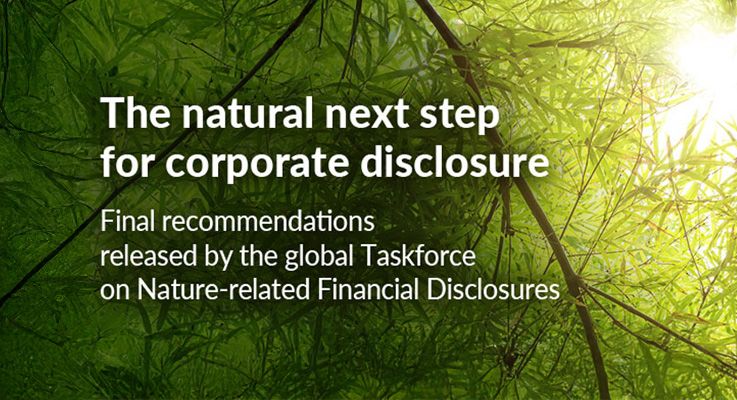The use of artificial intelligence in legal practice continues to mature. While early adoption focused on discrete applications such as drafting assistance, document summarisation, and research support...
Introduction Artificial intelligence is reshaping the ways organisations manage the entire employment lifecycle, from screening resumes and identifying potential candidates to supporting employee development...
Authored by Jennifer Raphael , Senior Legal Writer, Construction. 2026 is shaping up to be a pivotal year for construction law in Australia. Across multiple jurisdictions, governments are moving from...
Across Australia and New Zealand, legal professionals are embracing a new era of AI-powered transformation. At the 2025 LexisNexis Legal AI Showcase , hundreds of attendees tuned in to see how Lexis...
Authored by Seeta Bodke , Head of Product - Pacific, LexisNexis® Legal & Professional At LexisNexis, our mission is to advance the rule of law through responsible innovation. The launch of Protégé General...

On 18 September 2023 at Climate Week NYC, the Taskforce on Nature-related Financial Disclosures (TNFD) released its highly anticipated final recommendations for nature-related risk management and disclosure (TNFD recommendations). The TNFD recommendations:
- give companies and financial institutions a framework to identify, assess, manage and report on their dependencies and impacts on nature and their nature-related risks and opportunities; and
- ultimately, aim to redirect global financial flows away from activities that harm nature, and towards activities that benefit nature.
The TNFD recommendations (along with implementation guidance and additional guidance for financial institutions and biomes) are now available for market adoption after rounds of extensive market consultation and testing of a series of draft beta versions over the last two years.
What do the TNFD recommendations include?
The TNFD recommendations include:
- An outline of key concepts and definitions for understanding nature for use when assessing and disclosing nature-related issues;
- Separate guidance for corporates and financial institutions to assess nature-related issues and incorporate them into their strategy and risk management processes to inform a range of corporate and capital allocation decisions (adopting the LEAP approach); and
- The TNFD’s 14 recommended disclosures for nature-related issues to be provided alongside financial statements. These relate to the four pillars of governance, strategy, risk & impact management and metrics & targets (consistent with the Task Force on Climate-related Financial Disclosures (TFCD)).
Why is nature relevant to company decision-making?
Whilst climate-related (eg emissions reduction) targets continue to be a key priority for corporate Australia, in recent years there has been an increasing focus on nature and biodiversity protection and global recognition that net zero emissions cannot be achieved without a transition to nature positivity[1].
In 2021 the TNFD was established to provide a framework for nature (in addition to climate) to be factored into financial and business decisions. Businesses depend on nature, either directly or indirectly through their supply chains. Accordingly, by considering nature in their decision-making, businesses may identify new opportunities to innovate, diversify products and services and enhance brand value, market differentiation and stakeholder relations. Alongside climate change, nature is no longer solely a corporate social responsibility issue, but a core and strategic risk management issue.
Growing tide of global standardisation of ESG disclosures
The TNFD recommendations represent the latest in the growing body of global standardisation of sustainability-related disclosure and reporting frameworks. The Global Biodiversity Framework adopted at the 15th Conference of the Parties to the UN Convention on Biological Diversity in Canada in 2022 (COP 15 Global Biodiversity Framework) sets global policy goals and targets to halt and reverse biodiversity loss by 2030. The TNFD is aligned with the COP 15 Global Biodiversity Framework and, in particular, supports Target 15 relating to enabling businesses to monitor and report on their nature-related and biodiversity risks, dependencies and impacts.
The TNFD is also consistent with other relevant global reporting standards. The TNFD recommendations are closely aligned with the TCFD’s climate-related disclosure recommendations and the International Sustainability Standards Board (ISSB) so as to enable the integration of both climate and nature-related risk management and disclosures. Further, the TNFD is aligned with the broader materiality approach consistent with the Global Reporting Initiative (GRI) standards.
Mandatory climate-related disclosure is proposed to commence in Australia for reporting periods from 1 July 2024 for certain large organisations, however the Federal Government, in its consultation paper for climate-related financial disclosure, noted that the reporting format requirements have been structured to allow for additional reporting, eg around nature and biodiversity. This corresponds with the TNFD’s support of integrated climate and nature-related risk management and disclosures and lays the foundations for if/when future TNFD-aligned nature reporting standards are developed globally and in Australia.
What should companies and financial institutions be doing now?
The TNFD encourages (voluntary) early adoption of its recommendations by companies and financial institutions given the urgent need to address both nature loss and climate change in an integrated manner. While not mandatory, boards, risk management and financial reporting teams will be best placed to commence the identification and assessment of their dependencies and impacts on nature. In doing so, companies may refer to the following guidance published by the TNFD:
- Getting started with the adoption of the TNFD Recommendations; and
- Guidance on the identification and assessment of nature-related issues: the LEAP approach.
Organisations that do so will position themselves well to meet both increasing investor demands for disclosure of material ESG risks (including both climate and nature-related risks) and potential future reporting requirements.
How does the TNFD impact upon the finance sector?
The TNFD provides additional guidance for financial institutions (including banks, insurance companies, asset managers, owners and development finance institutions) that has been developed to assist the sector in applying the TNFD’s recommended disclosures.
The TNFD recommendations and additional guidance will assist financial institutions in assessing any impacts on the nature of their direct operations, and, in many cases more significantly, the impacts across their financial, investment and insurance portfolios.
Once companies begin to report on nature-related issues and more comparable data becomes available, this will enable increased lending opportunities and provide a broader scope for sustainable finance linked to the preservation of biodiversity and natural capital.
While corporate Australia is gearing up for the upcoming climate reporting regime, nature-related disclosures will remain an area to watch. The Federal Government has stated its support for the TNFD as a strategic partner and is committed to ensuring that the TFND framework is fit for the Australian context and supporting industry readiness. Australia will host the first Global Nature Positive Summit in Sydney in October 2024.
Stay ahead with LexisNexis Practical Guidance. To keep on top of the latest developments in this area and other topical issues affecting your practice area, subscribe to our fortnightly Practical Guidance round-ups here.
[1] “Nature positive” is an (evolving) concept and refers to the positive contribution that organisations can make to the conservation, restoration, and sustainable use of biodiversity and ecosystems, as well as the benefits and value that they can derive from them.





